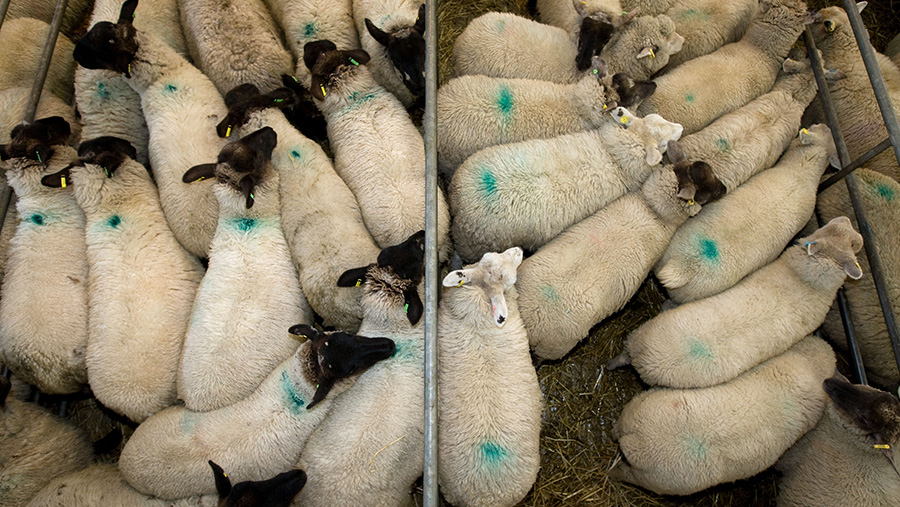Live marts see turnover and throughput hike in 2020
 © Tim Scrivener
© Tim Scrivener Livestock market throughputs rose during 2020, with 11 million animals sold and a turnover of more than £1.8bn.
Figures for England and Wales, published by the Livestock Auctioneers’ Association (LAA), show an increase on 2019 in almost every sector. The 9.8 million sheep and 1.3 million cattle sold at markets is up from 10.7 million in 2019 across all species.
Total cattle sales were up 30,000 compared with 2019, while overall sheep sales rose by 370,000 on the year.
See also: Disappointment as food import border check deadline reviewed
Live mart throughputs 2020 (head)
Store and breeding stock
- Adult cattle 754,000
- Calves 220,000
- Sheep 2.91 million
Slaughter stock
- Cattle 285,000
- Sheep 6.89 million
The LAA hailed the increase as a huge success for live sales in a year that saw a drop in production numbers in some categories. It pointed to Defra figures revealing a 3.7% reduction in overall mutton and lamb production and a 15% drop in slaughter numbers for ewes and rams.
In contrast, slaughter stock numbers for sheep sold through the live markets increased by almost 5% to ore than 6.8 million, the LAA said. Calf throughputs also rose, increasing by 10,000 to total 220,000 head.
The increased throughput and higher livestock prices were reflected in a £1.8bn turnover, up 15% or £260m compared with year earlier figures.
Chris Dodds, LAA executive secretary, said the success had been due in part to live markets drawing in more small and medium-sized retailers and butchers during the challenges of the coronavirus pandemic.
More local buyers were better able to source the right stock for their businesses as demand through these outlets soared, said Mr Dodds.
Timed online sales had also provided a workable solution when traditional live sales could not take place.
“Providing this opportunity for live distance-bidding is a strong add-on to the core business of our members, providing a competitive and transparent environment to achieve a true and fair price for livestock,” he said.
However, the LAA said the higher turnover should be offset against the considerable increase in staffing and market operational costs needed to manage and police biosecure sales environments during the pandemic.
